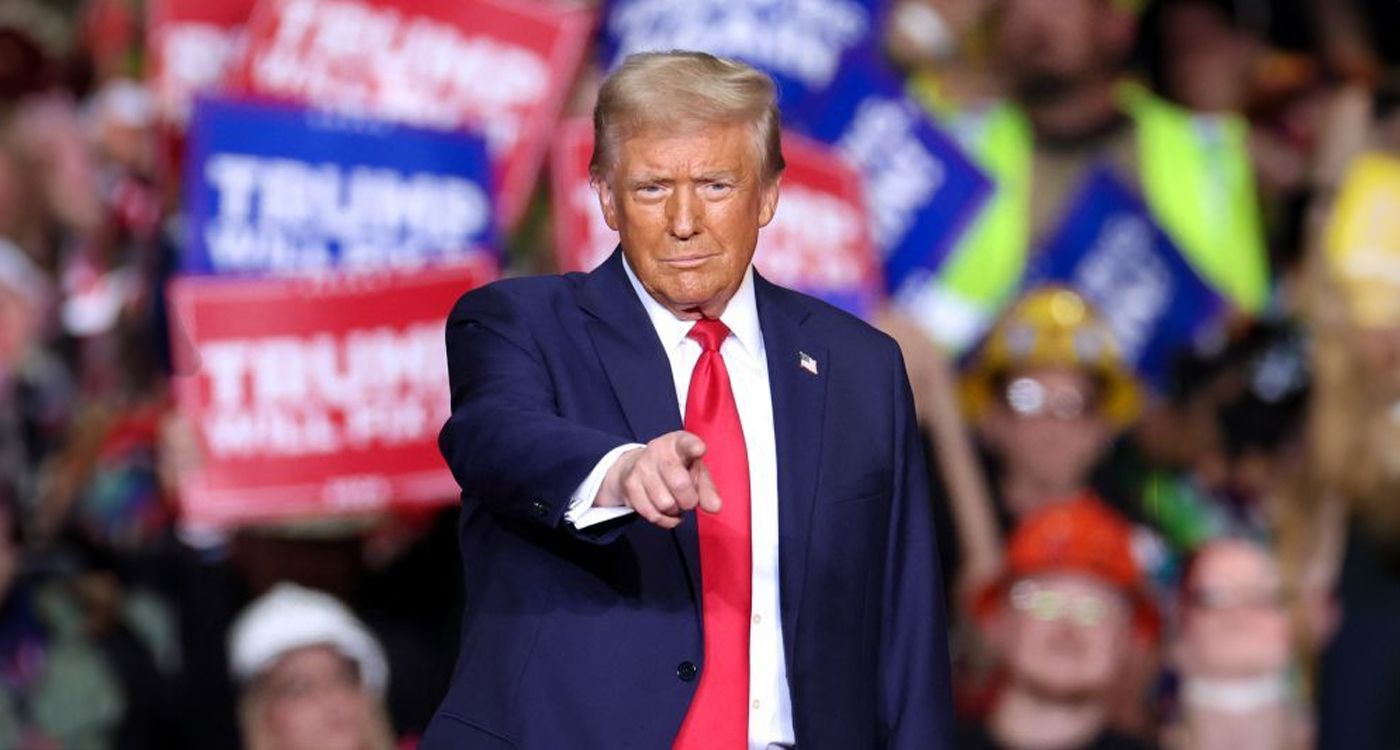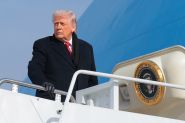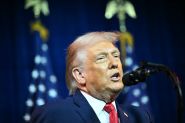- Home
- Middle East
- A Shift Toward Hawkish US Foreign Policy and Its Impact on the Middle East

US President-Elect Donald Trump ©AFP
As President-elect Donald Trump approaches his second term, there's an increasing focus on the potential impacts of his foreign policy choices, especially following the appointments of key loyalists to his administration. With a cabinet emphasizing a penchant for disruption, Trump's strategy appears set to shift from traditional political norms. This shift echoes the words of Scott Faulkner, Ronald Reagan's director of personnel, who famously stated, "Personnel is policy."
Here are some key features that might define his upcoming foreign policy.
A key aspect of Trump's cabinet is its unmistakably hawkish stance on China alongside a supportive position on Israel. This is particularly evident in the appointment of Florida Senator Marco Rubio as Secretary of State and Mike Huckabee, the former governor of Arkansas, as the next US ambassador to Israel. Rubio has established a reputation for his strong criticisms of China, signaling a bold US stance in dealing with the growing concerns about China's expanding influence. This could lead to a more aggressive approach to trade negotiations and geopolitical conflicts. Meanwhile, Huckabee's selection suggests a win for right-wing ideologues in both Washington and Israel, as well as for the settler movement's agenda. It may seriously complicate any ambitions for normalization between Israel and Saudi Arabia, as well as broader expansion of the Abraham Accords.
Simultaneously, Pete Hegseth's appointment as Secretary of Defense draws significant attention. His background may stir debate in Washington, particularly during his Senate confirmation process. His focus on military readiness and cultural issues within the armed forces is expected to be a key point of scrutiny as his tenure unfolds.
The US-Iran relationship remains a complex issue in Middle Eastern geopolitics. The legacy of the previous Trump administration's foreign policy towards Iran has created a challenging backdrop for current diplomatic efforts amidst allegations indicating that Iran has posed various threats to US officials, raising concerns over the safety and security of American personnel overseas.
While some selections indicate a return to traditional foreign policy figures, such as Rubio, others resonate with the disruptive spirit that characterized Trump's earlier tenure. This disruptive spirit, often manifested in unconventional diplomatic approaches and a willingness to challenge established norms, will likely continue influencing the administration's foreign policy decisions. Rubio's commitment to NATO and support for Ukraine highlights a strategic blend that seeks to reconcile Trump's populist tendencies with established diplomatic norms.
Furthermore, other significant appointments, such as former Congressman Mike Waltz as National Security Adviser and Congresswoman Elise Stefanik as UN Ambassador, reflect a broader strategy emphasizing careful yet steadfast engagement with allies and adversaries. Each appointee brings unique perspectives and priorities, likely shaping the administration's responses to future global challenges.
In conclusion, while Trump's foreign policy trajectory is complex and unpredictable, recent cabinet appointments may signal a new phase of power and a potential strategic reorientation, particularly in relations with key geopolitical actors in the Middle East. Such a reorientation could significantly alter global dynamics, making the future of US foreign policy a topic of great importance.
Meet Trump's Team Impacting the Middle East
- Marco Rubio, Secretary of State: Once a critic of Trump during the 2016 GOP primaries, the Florida senator has since formed a strong bond with the president-elect. Rubio is known for his firm stance on the issues of China, Iran, and Cuba.
- Pete Hegseth, Secretary of Defense: At 44, Pete is a National Guard veteran from Minnesota and a familiar face from Fox News for a decade.
- John Ratcliffe, CIA Director: This former House representative and Republican has previously held the role of Trump's director of national intelligence. He also served as an acting US attorney in Texas.
- Elise Stefanik, US Ambassador to the United Nations: As one of the prominent House Republicans, Stefanik caught the spotlight for her efforts related to the 2020 presidential election and her approach to discussions about antisemitism in higher education.
- Mike Waltz, National Security Adviser: A former Green Beret and current colonel in the Army National Guard, Mike represents Florida's 6th congressional district in the House. He previously worked at the Pentagon as a defense policy director.
- Mike Huckabee, US Ambassador to Israel: The former Arkansas governor, who ran for president in 2008 and 2016, has previously denied rumors of being offered the ambassador position during Trump's first term.
- Steve Witkoff, Special Envoy to the Middle East: A real estate investor and a long-time golf buddy of Trump's. Witkoff’s biggest asset is his direct line to the president-elect.
Read more




Comments